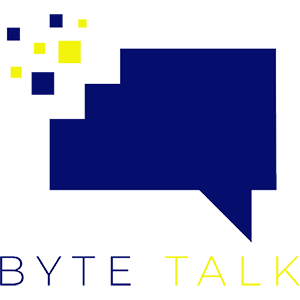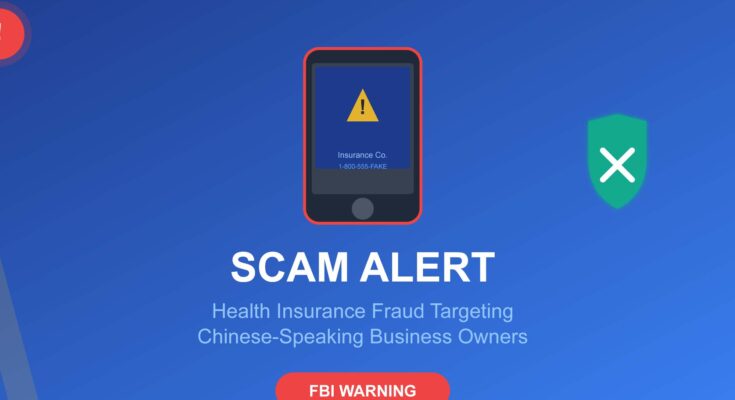FBI Alert: November 2024
If you or your employees speak Chinese, you need to know about a sophisticated scam that’s targeting Chinese-speaking business owners and workers across the United States. The FBI has issued a warning about criminals who are impersonating both health insurance companies and Chinese law enforcement to steal money and personal information.
How This Scam Works
Here’s what’s happening: business owners and employees are receiving phone calls that appear to come from legitimate health insurance companies like Blue Cross, Aetna, or UnitedHealthcare. The caller ID looks real because scammers can fake phone numbers to match actual insurance company numbers.
The conversation happens entirely in Chinese, which makes targets feel more comfortable and less suspicious. The scammer claims there’s a problem with an insurance claim for a surgery or medical procedure. They’ll show fake invoices through video chat apps and demand immediate payment.
When the victim says they never had the surgery or filed the claim, things escalate quickly. The scammer transfers them to someone pretending to be Chinese law enforcement. This fake officer demands personal information, threatens the victim with extradition to China or criminal prosecution, and insists on a large “bail” payment.
In some cases, victims are told to download video software and keep their camera on for “24-hour surveillance.” This tactic is designed to isolate the victim and maintain psychological pressure.
Why Business Owners Need to Pay Attention
If you employ Chinese-speaking staff or have Chinese-speaking customers, this scam could affect your business in several ways:
Your employees might fall victim during work hours, causing distraction, emotional distress, and potential financial losses that affect their ability to focus on their job.
Scammers may target your business phone lines if you provide health insurance benefits to employees, especially if your company information is publicly available.
Personal information shared during these scams could lead to identity theft that impacts your employees’ ability to work or creates complications with your business’s payroll and HR systems.
What You Can Do to Protect Yourself and Your Team
Educate your Chinese-speaking employees and partners about this scam. Share this information at team meetings or through your internal communications.
Verify everything independently. If anyone receives a call about health insurance claims, they should hang up and contact their insurance company directly using the phone number on their insurance card or the company’s official website. Never use contact information provided by the caller.
Never share personal information over the phone with unsolicited callers. Real insurance companies and law enforcement won’t call demanding immediate payment or personal details without proper documentation.
Never wire money or send payment based on a phone call. Legitimate insurance issues are handled through official channels with proper paperwork and time to verify claims.
Don’t download software at the request of someone who calls you. Video surveillance requests are a major red flag. No legitimate organization operates this way.
Trust your instincts. If something feels wrong or too urgent, it probably is. Scammers create artificial pressure to prevent victims from thinking clearly or seeking advice.
What Makes This Scam Particularly Dangerous
This fraud scheme is effective because it combines several psychological tactics. It uses language and cultural touchpoints to build false trust, creates fear through threats of legal action, and applies time pressure to prevent victims from thinking rationally. The use of video technology makes the scam feel more official and intimidating.
Many people in immigrant communities may already feel vulnerable about their status or worried about interactions with law enforcement, which scammers exploit ruthlessly.
If You or Someone on Your Team Falls for This Scam
First, don’t feel ashamed. These scams are sophisticated and designed by professionals who understand human psychology. Contact your local FBI field office immediately and file a report with the Internet Crime Complaint Center at www.ic3.gov.
When you file a report, include every detail you can remember: phone numbers that called, email addresses, company names used, any website addresses or app names, transaction details even if no money was actually sent, and a timeline of what happened.
Also contact your bank immediately if you sent any money, and alert your health insurance company if you shared any policy information.
The Bottom Line
Your business’s strength comes from your people. Protecting your team from sophisticated scams like this isn’t just about preventing financial loss—it’s about creating a workplace where everyone feels secure and informed. Take a few minutes this week to share this information with your Chinese-speaking employees, contractors, or business partners. That simple conversation could save someone from significant financial and emotional harm.
Remember: real insurance companies and law enforcement agencies don’t operate through threatening phone calls demanding immediate payment. When in doubt, hang up and verify independently.




